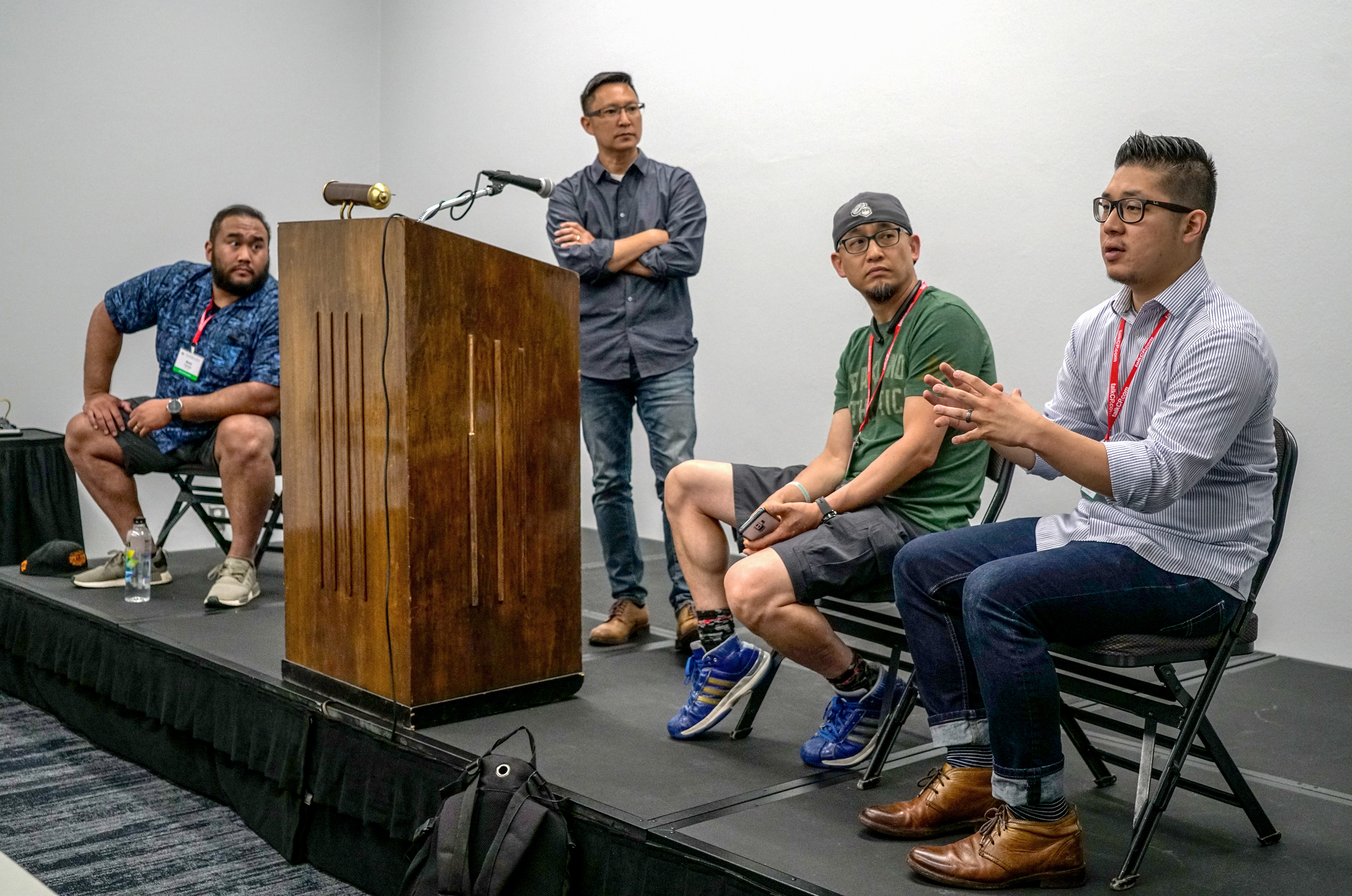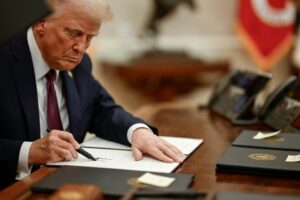
DALLAS (BP) — Struggles and opportunities unique to second-generation Americans pastoring beyond their cultural heritage are a new focus of the 2nd Generation Asian-American Fellowship.
 The Southern Baptist fellowship drew about 20 pastors to a noon panel discussion June 12 in Dallas, kicking off a mentoring initiative to help second — and even third — generation pastors successfully navigate cross-cultural church planting and pastoral ministry. The event was held in conjunction with the Southern Baptist Convention’s annual meeting.
The Southern Baptist fellowship drew about 20 pastors to a noon panel discussion June 12 in Dallas, kicking off a mentoring initiative to help second — and even third — generation pastors successfully navigate cross-cultural church planting and pastoral ministry. The event was held in conjunction with the Southern Baptist Convention’s annual meeting.
“Oftentimes it has been a lonely, very isolating typical journey for us as we’ve gone down this road,” fellowship president and cross-cultural pastor Thomas Wong told those gathered at the event.
“We didn’t know who were the role models that were ahead of us,” Wong said, “and certainly looking from our immigrant church background, we didn’t always receive the blessing and the support to go, to be released to go.”
Panelists with Wong were Won Kwok, lead pastor of Maranatha Grace Church in Englewood Cliffs, N.J.; fellowship vice president A.J. Camota, pastor of International Christian Fellowship in Suffern, N.Y.; and James Choi, church planting catalyst for the Baptist Convention Maryland/Delaware.
“Our desire is really to create a catalyst where there would be a fellowship of second-generation leaders that are maybe five, 10 years ahead, emerging leaders that we can share our stories with,” Wong said. Emerging leaders, already becoming prominent, would be equipped to listen to, mentor and coach those just beginning the journey.
Among more than 2,000 Asian American Southern Baptist churches in the U.S., Wong has estimated perhaps a few hundred are led by second-generation pastors. The National Asian American Fellowship of the SBC launched the second generation group at the 2017 SBC Annual Meeting in Phoenix.
Of Chinese heritage, Wong is the lead pastor and planter of the two-year-old Point Community Church in East Brunswick, N.J., a fellowship of 50-70 worshipers including Chinese, Korean, Egyptian, Latino, African American, Indian, Jamaican and other ethnicities. He achieved diversity at Point Community by launching the church with a multiethnic ministry team.
He describes Point Community Church as looking “a little like the Kingdom of God,” and expressed a desire to share his experiences and struggles to help the next generation of leaders.
Filipino American panelist Camota is associate pastor of a formerly majority Filipino church that has merged with an older Anglo congregation, Camota said. The church is seeking to be multiethnic and multigenerational.
“You can consider the discomfort from all of these different people across different ethnic backgrounds, across different worship [traditions],” Camota said, “wondering how they can do church in a way that reaches more people, but struggles to get out of its comfort zone.”
Among challenges panelists discussed are:
— the necessity of sacrificing culturally based relationships to fellowship outside one’s first culture;
— overcoming cultural barriers that aren’t readily perceived, such as the tendency to prepare fellowship meals including only the favored cuisine of one culture;
— resistance to change from members of an established church’s historical culture;
— and the tendency of residents in the churches’ neighborhood to drive miles out of their way to avoid attending the closer church of an ethnicity other than their own.
Among those in attendance was North American Mission Board church planting catalyst Steve Allen, an Anglo who volunteers as an associate pastor at a majority Filipino, but multiethnic, multigenerational church in New York. It’s necessary to develop a “cultural agility,” Allen said, to thrive in multiethnic congregations.
Panelists pointed to hospitality, discipleship, self-denial, self-control and cross-cultural learning as necessities as well. The church ought to be where everyone feels equal, panelists said.
Interest in the panel discussion was greater than expected, Wong said, noting first-generation immigrant pastors, second-generation Asian Americans and Anglos.
“This is a conversation that has to happen with all generations and ethnic groups,” Wong said. “In order for this multiethnic, multigenerational reality to actually happen in the SBC, it’s going to require every voice and every person at the table.”
Panelists exchanged contact information with those in attendance, expressing hopes of continued discussions and mentorships.












